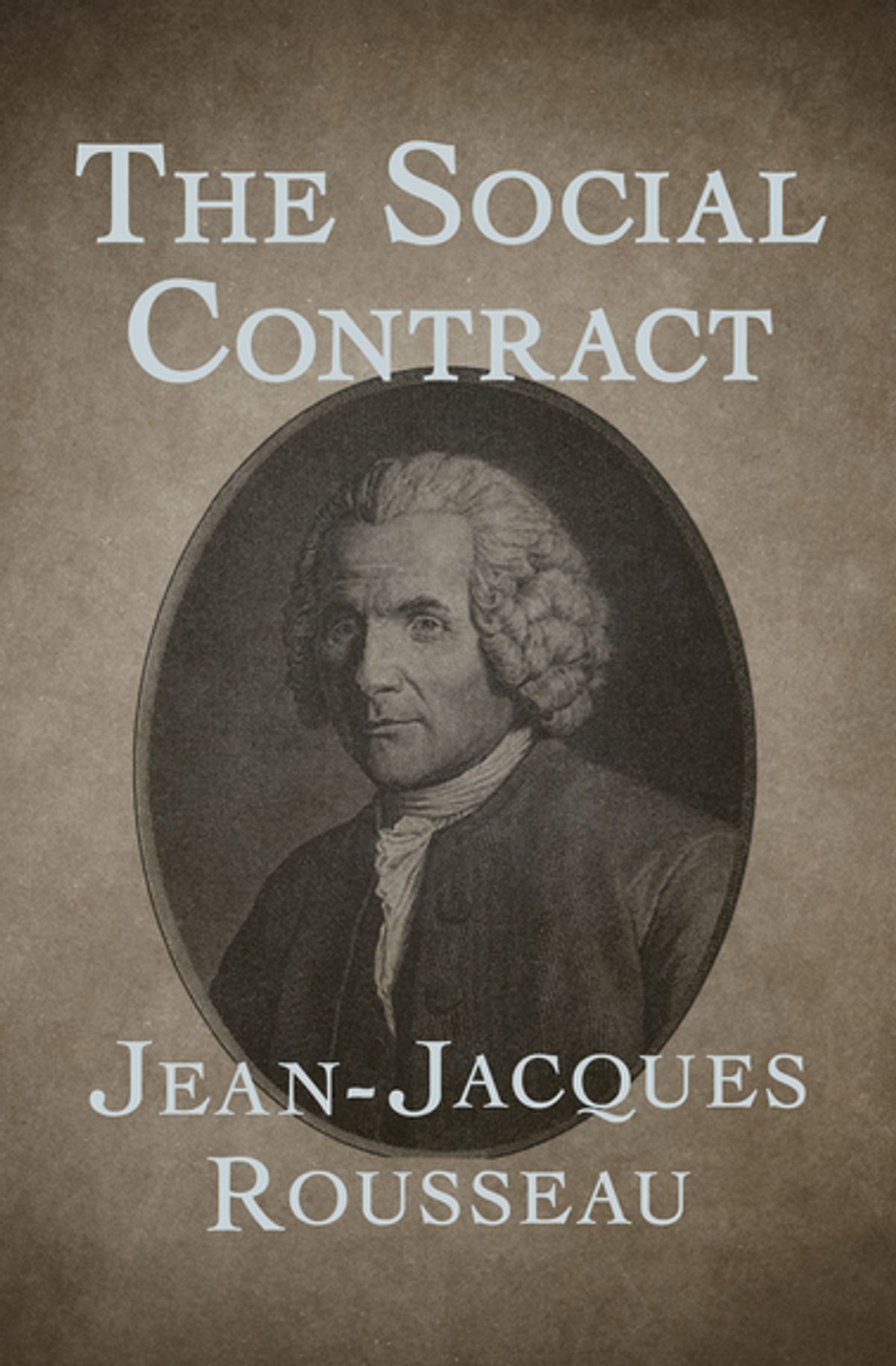Prior to this, parliament was elected on a First Past the Post system, where the party with the most votes could still lose an election, and smaller parties with significant shares of the vote achieved no or minimal representation. On October 12 1996 the new electoral process of MMP offered more proportional representation through a two-vote system and moved the New Zealand process away from what Sir Geoffrey Palmer, the Labour Prime Minister who initiated the Royal Commission for electoral review, described as ‘elected dictatorships.’
The philosophical basis for fair, proportional representation in the electoral process hangs on the premise that democracy should be organised around a system of government by the people and for the people.

The Social Contract is an influential text by Jean-Jacques Rousseau, published in 1762, which describes the factors required to establish a legitimate governing process for a nation state. Its discussion of political and social theory was pivotal in the French Revolution and formation of the US Constitution, and continues to be central to modern political thinking.
Rousseau’s opening line, ‘Man is born free, but he is everywhere in chains,’ highlights the challenges of restrictions to freedom which organised society creates. The concern which motivated Rousseau to write The Social Contract was the unreasonable use of laws and restrictions at the time which served, rather than to benefit society, to reinforce the position and power of the rich and powerful. Rousseau’s premise was that legitimacy of states and political authority required citizens to recognise the value of the government and consent to live under its laws. Thus, when people accept restrictions on freedom over individual autonomy for the greater value of community peace, security and well-being, a social contract is formed.
This evolution in ancient human societies from unrestrained ‘natural freedom’ to law-constrained ‘civil freedom’ heralded the capacity of humanity to control impulses and consider consequences of actions on others, the development of rationality and morality. Rousseau developed the idea of ‘the sovereign,’ a society committed to the common good acting as a collective person. Rather than authority being held by a single sovereign person, Rousseau argued that sovereignty should reflect the general will and authority of the people over its leader(s). Such sovereignty is expressed in an ideal state through laws consented to by its citizens and enforced for the collective good.
Expressions of government lie on a spectrum from monarchy to aristocracy and then democracy, according to degrees of involvement by citizens in implementing laws. Rousseau’s recommendation was that an aristocracy was the fairest and most pragmatic form of social contract-based government. A monarchy gave a single person total executive power. Rousseau’s definition of democracy was truly by the people, for the people, an inefficient and unworkable system of all citizens actually governing. The principle of aristocracy, despite its negative modern connotations, simply means ruling by the best, although a better term would be meritocracy, as the term ‘aristocrat’ became synonymous with the upper-class nobility in society rather than those whose merits or skills and experience qualified them for leadership.
This seems a long way from the blog’s titled promise of vaccination issues, but bear with me!
Accountability in government is always to the sovereign, and in the case of Rousseau’s sovereignty of the people, this was achieved through ‘democratic assemblies.’ Such a process involved citizens gathering publicly and collectively expressing concerns and will to the government through propositions, discussion and voting. Such communal activity promoted the concept of ‘civic virtue’ and citizen participation, key elements to the social contract.
Civic virtues are those elements of thinking and behaviour which contribute to a person being a good member of society with a commitment to the well-being of one’s community. When individual interests are elevated over civic virtues, the common good is compromised and factions with differing agendas can disrupt the social contract.
Rousseau was, controversially, a proponent of state-sponsored religion. Ancient societies held religion and nationhood inseparably, as their gods, territories and identities were aligned. Christianity disrupted this paradigm through its evangelical reach to all ethnicities and territories, and the resulting separation of church from state. Whilst this inclusive intent was positive, it led to the church establishing laws and values which often were in opposition to those of the state. Rousseau proposed that citizens be taught civic virtues, such as the high status of laws and the constitution, liberty and equality as the core elements of a state religion.
Our modern systems of democratic government largely align with these principles, although the expression remains widely variable across differing nations. One challenge is how to functionally and efficiently enable ‘democratic assemblies’ to have their voice in holding governments accountable to the agreed ‘civic virtues.’
One example of such a challenge involves pandemic-related Covid19 vaccination, mandates, and lockdown restrictions. Some voices call for ‘bodily autonomy’ and ‘individual rights,’ whilst others express ‘social responsibility’ and the role of ‘the team of five million.’
The principles of ‘virtue ethics’ have been around since Socrates first iterated them, and have recently encountered a resurgence through the writings of contemporary philosophers such as Paul Ricoeur, Alasdair MacIntyre, and Rosalind Hursthouse. Alongside the two traditional approaches to normative ethics, consequentialism (greatest good for greatest number) and deontology (fixed moral codes for behaviour), virtue ethics promotes agreed moral values as determinant over outcomes or duty. Such values-based ethical norms may be individual or community-based, and are dynamic, as social pressures, environmental changes, and evolving epistemology promote assessment and review of moral positioning. This may well align best with Rousseau’s ‘civic virtues,’ which also promote active engagement and application of those values held paramount by citizens to maximise community well-being.
Whichever measure of social well-being is used, Wilkinson and Pickett’s landmark work in 2009, The Spirit Level, identified, through extensive statistical analysis of the 23 richest nations, that those with the most economic equity performed best across a wide range of measures. Whether measuring health, prosperity, justice, education, or sustainability, narrow gaps in wealth distribution equated to more healthy and flourishing societies. The authors conclude that ‘inequality…is a hugely damaging force.’ They describe inequality as eroding ‘social capital,’ by way of diminishing community cohesion, networks, trust and empathy. One could reference Rousseau by saying that inequality as Wilkinson and Pickett describe it compromises the ‘social contract.’
So, what may be some of the ‘civic virtues’ identifiable or desired in contemporary New Zealand as a nation? Equity-promoting, equal-opportunity, law-abiding, and well-being-focused, could be some of these desirable goals. Mahatma Gandhi said, “The true measure of any society can be found in how it treats its most vulnerable members.” I would add to the list of virtues ‘protecting those at risk of harm.’ Wilkinson and Pickett have identified that a more equitable society, with a reduced wealth gap, lifts the well-being of the vulnerable and enhances the quality of life for all members of that society.
New Zealand is due to legalise Assisted Dying on Nov 7th 2021, one year after a binding referendum of its voting citizens committed the government to this legislated process. Whilst I wrote submissions in opposition to the legislation as it was written, including a blog, and I endorse the position taken by the Royal NZ College of General Practitioners, I actively participated in the implementation of the legislation through National Advisory Groups. This was not incongruous with my personal and ethical position. Rather, I accepted that appropriate ‘democratic assemblies’ had been conducted and the sovereignty of the citizens had directed government and law makers to reform end of life clinical care and choice. Furthermore, holding to ethical virtues of protecting the vulnerable, my Hippocratic Oath as a doctor, and my commitment to promoting wellness and well-being throughout life, my civic and professional duty was to participate in forming an assisted dying process which is as safe, robust and supportive as possible.
So, to vaccination, and the hook with which I have dragged your attention through political and social theory to this current and contentious issue. Thank you for persevering!

There is much that has been written and spoken of regarding the purpose, safety, risks, strategy and targets of vaccination against Covid19. These will not be revisited here, but feel free to follow the hyper-links. The modern-day version of ‘democratic assemblies’ includes, for better or worse, the legion of social media platforms, accessing unfiltered information sources from the internet as well as more conventional media and public health information sources. Arguments against mandated vaccination include paucity of evidence, safety, individual rights, and bodily autonomy. Arguments promoting appropriately mandated vaccination are focused on issues of community and social protection and resilience.
I am an evidence-trained doctor, and remain committed to informing as much of my practice with robust evidence as possible. As a trained and active critical reviewer of medical and scientific literature, I am confident in the advice of those independent experts who are informing the government on Covid19-related decisions, including vaccination. The overriding values that seem to be guiding policy-makers are protecting the population from Covid19-disease, ensuring the health system is in a position to cope with pandemic illness, and supporting the economy to survive through the pressures of lockdown. My concerns are that inadequate measures have been instituted to support principles of equity, in particular for the most at-risk members of our communities, the ethnically vulnerable, socially disadvantaged, health compromised, and mainstream marginalised. Furthermore, whilst the opponents of the vaccination programme in New Zealand may be responsible for influencing the vaccine-hesitant and unduly exposing their wider community to increased disease risk, forced suppression of their voice contravenes another ‘civic virtue,’ that of free speech. I suspect open discourse and supportive process for those questioning, suspicious or ambivalent towards vaccination may be a less combative and more productive path to ‘civil freedom’ and a flourishing ‘social contract.’